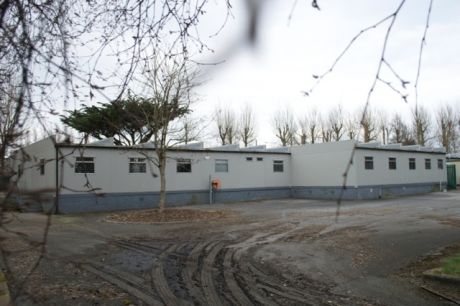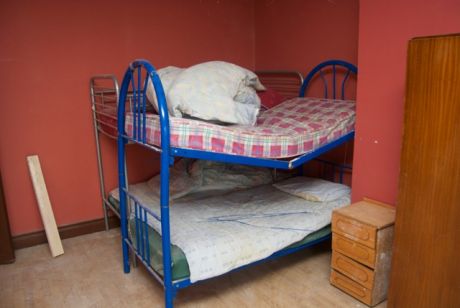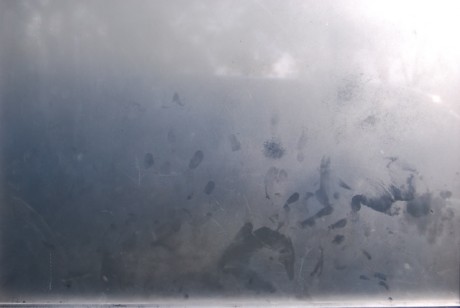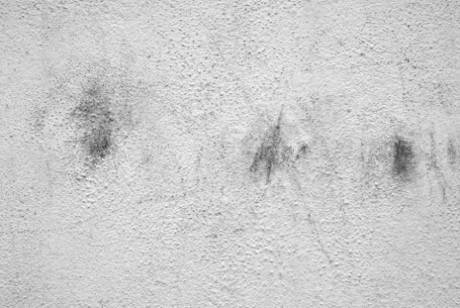 North Korea Increases Aid to Russia, Mos... Tue Nov 19, 2024 12:29 | Marko Marjanovi? North Korea Increases Aid to Russia, Mos... Tue Nov 19, 2024 12:29 | Marko Marjanovi?
 Trump Assembles a War Cabinet Sat Nov 16, 2024 10:29 | Marko Marjanovi? Trump Assembles a War Cabinet Sat Nov 16, 2024 10:29 | Marko Marjanovi?
 Slavgrinder Ramps Up Into Overdrive Tue Nov 12, 2024 10:29 | Marko Marjanovi? Slavgrinder Ramps Up Into Overdrive Tue Nov 12, 2024 10:29 | Marko Marjanovi?
 ?Existential? Culling to Continue on Com... Mon Nov 11, 2024 10:28 | Marko Marjanovi? ?Existential? Culling to Continue on Com... Mon Nov 11, 2024 10:28 | Marko Marjanovi?
 US to Deploy Military Contractors to Ukr... Sun Nov 10, 2024 02:37 | Field Empty US to Deploy Military Contractors to Ukr... Sun Nov 10, 2024 02:37 | Field Empty Anti-Empire >>
Indymedia Ireland is a volunteer-run non-commercial open publishing website for local and international news, opinion & analysis, press releases and events. Its main objective is to enable the public to participate in reporting and analysis of the news and other important events and aspects of our daily lives and thereby give a voice to people.
 Fraud and mismanagement at University College Cork Thu Aug 28, 2025 18:30 | Calli Morganite Fraud and mismanagement at University College Cork Thu Aug 28, 2025 18:30 | Calli Morganite
UCC has paid huge sums to a criminal professor
This story is not for republication. I bear responsibility for the things I write. I have read the guidelines and understand that I must not write anything untrue, and I won't.
This is a public interest story about a complete failure of governance and management at UCC.
 Deliberate Design Flaw In ChatGPT-5 Sun Aug 17, 2025 08:04 | Mind Agent Deliberate Design Flaw In ChatGPT-5 Sun Aug 17, 2025 08:04 | Mind Agent
Socratic Dialog Between ChatGPT-5 and Mind Agent Reveals Fatal and Deliberate 'Design by Construction' Flaw
This design flaw in ChatGPT-5's default epistemic mode subverts what the much touted ChatGPT-5 can do... so long as the flaw is not tickled, any usage should be fine---The epistemological question is: how would anyone in the public, includes you reading this (since no one is all knowing), in an unfamiliar domain know whether or not the flaw has been tickled when seeking information or understanding of a domain without prior knowledge of that domain???!
This analysis is a pretty unique and significant contribution to the space of empirical evaluation of LLMs that exist in AI public world... at least thus far, as far as I am aware! For what it's worth--as if anyone in the ChatGPT universe cares as they pile up on using the "PhD level scholar in your pocket".
According to GPT-5, and according to my tests, this flaw exists in all LLMs... What is revealing is the deduction GPT-5 made: Why ?design choice? starts looking like ?deliberate flaw?.
People are paying $200 a month to not just ChatGPT, but all major LLMs have similar Pro pricing! I bet they, like the normal user of free ChatGPT, stay in LLM's default mode where the flaw manifests itself. As it did in this evaluation.
 AI Reach: Gemini Reasoning Question of God Sat Aug 02, 2025 20:00 | Mind Agent AI Reach: Gemini Reasoning Question of God Sat Aug 02, 2025 20:00 | Mind Agent
Evaluating Semantic Reasoning Capability of AI Chatbot on Ontologically Deep Abstract (bias neutral) Thought
I have been evaluating AI Chatbot agents for their epistemic limits over the past two months, and have tested all major AI Agents, ChatGPT, Grok, Claude, Perplexity, and DeepSeek, for their epistemic limits and their negative impact as information gate-keepers.... Today I decided to test for how AI could be the boon for humanity in other positive areas, such as in completely abstract realms, such as metaphysical thought. Meaning, I wanted to test the LLMs for Positives beyond what most researchers benchmark these for, or have expressed in the approx. 2500 Turing tests in Humanity?s Last Exam.. And I chose as my first candidate, Google DeepMind's Gemini as I had not evaluated it before on anything.
 Israeli Human Rights Group B'Tselem finally Admits It is Genocide releasing Our Genocide report Fri Aug 01, 2025 23:54 | 1 of indy Israeli Human Rights Group B'Tselem finally Admits It is Genocide releasing Our Genocide report Fri Aug 01, 2025 23:54 | 1 of indy
We have all known it for over 2 years that it is a genocide in Gaza
Israeli human rights group B'Tselem has finally admitted what everyone else outside Israel has known for two years is that the Israeli state is carrying out a genocide in Gaza
Western governments like the USA are complicit in it as they have been supplying the huge bombs and missiles used by Israel and dropped on innocent civilians in Gaza. One phone call from the USA regime could have ended it at any point. However many other countries are complicity with their tacit approval and neighboring Arab countries have been pretty spinless too in their support
With the release of this report titled: Our Genocide -there is a good chance this will make it okay for more people within Israel itself to speak out and do something about it despite the fact that many there are actually in support of the Gaza
 China?s CITY WIDE CASH SEIZURES Begin ? ATMs Frozen, Digital Yuan FORCED Overnight Wed Jul 30, 2025 21:40 | 1 of indy China?s CITY WIDE CASH SEIZURES Begin ? ATMs Frozen, Digital Yuan FORCED Overnight Wed Jul 30, 2025 21:40 | 1 of indy
This story is unverified but it is very instructive of what will happen when cash is removed
THIS STORY IS UNVERIFIED BUT PLEASE WATCH THE VIDEO OR READ THE TRANSCRIPT AS IT GIVES AN VERY GOOD IDEA OF WHAT A CASHLESS SOCIETY WILL LOOK LIKE. And it ain't pretty
A single video report has come out of China claiming China's biggest cities are now cashless, not by choice, but by force. The report goes on to claim ATMs have gone dark, vaults are being emptied. And overnight (July 20 into 21), the digital yuan is the only currency allowed. The Saker >>
Interested in maladministration. Estd. 2005
 RTEs Sarah McInerney ? Fianna Fail?supporter? Anthony RTEs Sarah McInerney ? Fianna Fail?supporter? Anthony
 Joe Duffy is dishonest and untrustworthy Anthony Joe Duffy is dishonest and untrustworthy Anthony
 Robert Watt complaint: Time for decision by SIPO Anthony Robert Watt complaint: Time for decision by SIPO Anthony
 RTE in breach of its own editorial principles Anthony RTE in breach of its own editorial principles Anthony
 Waiting for SIPO Anthony Waiting for SIPO Anthony Public Inquiry >>
Voltaire, international edition
 Will intergovernmental institutions withstand the end of the "American Empire"?,... Sat Apr 05, 2025 07:15 | en Will intergovernmental institutions withstand the end of the "American Empire"?,... Sat Apr 05, 2025 07:15 | en
 Voltaire, International Newsletter N?127 Sat Apr 05, 2025 06:38 | en Voltaire, International Newsletter N?127 Sat Apr 05, 2025 06:38 | en
 Disintegration of Western democracy begins in France Sat Apr 05, 2025 06:00 | en Disintegration of Western democracy begins in France Sat Apr 05, 2025 06:00 | en
 Voltaire, International Newsletter N?126 Fri Mar 28, 2025 11:39 | en Voltaire, International Newsletter N?126 Fri Mar 28, 2025 11:39 | en
 The International Conference on Combating Anti-Semitism by Amichai Chikli and Na... Fri Mar 28, 2025 11:31 | en The International Conference on Combating Anti-Semitism by Amichai Chikli and Na... Fri Mar 28, 2025 11:31 | en Voltaire Network >>
|
Asylum Apathy Asylum Archive
 national |
racism & migration related issues |
opinion/analysis national |
racism & migration related issues |
opinion/analysis
 Friday June 14, 2013 21:33 Friday June 14, 2013 21:33 by Eamonn Sheehy & Asylum Archive - Asylum Archive & Migrate To The Fringe by Eamonn Sheehy & Asylum Archive - Asylum Archive & Migrate To The Fringe

Ireland, asylum and the institutionalization of the young, old and innocent.
Direct Provision anyone?
 Asylum apathy
Society has always found it difficult to relate to minorities. From lack of knowledge follows distrust and fear. The polarisation of various factions of society across religious, racial and economic divides is rapidly growing.
Into the second anniversary of the Syrian war and a talk is starting in three minutes. The auditorium is full with the gravely concerned, interested in change for the betterment of Syria and its people. But where are the Syrians meant to go in order to escape the flames and the strife? These poor people we see on our TV screens...we hold solidarity with their plight! Speaker speak! Let us know what we can do!!
But outside of the debates and public discourse it’s a different attitude. Solidarity ends for such people as soon as they start seeking refuge. The asylum minority. Apathy begins and debates against are cooked up when faced with the critical and physical human fallout of the disasters we’re so gravely concerned about.
At our borders the victims are processed and catalogued by the Department of Justice. They are then enclosed in ‘direct provision’ centres usually stationed outside of urban areas, isolated locations away from the eyes of the general public. Out of sight out of mind is the solution society has come up with; and all accommodation needs are run at a profit just for good measure. So much for the public debates and discourse.
The victims are given an allowance that won’t lift them over the financial restrictions of local travel or a coffee and a chat in ‘normal’ environments. Marginalised from the start, thus begins the long journey through the hoops of the legal system, an entity more concerned with getting the asylum seeker back on a plane out of Ireland than their immediate wellbeing. ‘You mean there’s holding centres for people like this in Kerry, Cork, Limerick, Sligo...? With families?’
The heaviest baggage the person brings with them is the trauma of conflict and persecution. The psychological fragments are sharp and tear through the mind, sleepless nights and lost empty days. Nervous and physical breakdown sets in along with loneliness and the loss of everything once taken for granted.
And all this time the person is expected to defend themselves in interviews testing their legitimacy...questions on country of origin, routes of escape, torture, persecution, right to return, violence levels...are you legitimate, are you real...the distrust of the welcoming authorities is on par with high comedy.
’What level of violence do they think is safe enough for me to return to!? Why don’t they just leave me alone...leave me sleep...’
Masrour has that constant frown of agitation “I’ve been here 6 years now. I’m 25 years old, nearly 26...” He sits at the canteen table, slumped in he’s chair, with he’s old sports runners edging the table leg. Agitated at the sheer concept of time... waiting...”I’ve got two good shirts, they hang in my room. I have to air them as they smell sometimes with others sharing my room.” He is from Kurdistan. I ask him how things are there. He says it’s a mess, but recent memories are of waiting here in this complex. He doesn’t really want to engage in a conversation on Kurdistan despite my curiosity. I find the concept of spending the ‘best years of our life’s’ stuck in a glorified holding pin to be very daunting.
“You want to play a game of pool? We play it all the time here. There’s nothing else really to do but shoot pool. What a shithole.”
Ahlam is finding it hard to adjust. ‘Those guys just hang around in groups all the time, shouting out loud. My daughter finds it hard to focus. She has to study! I can’t believe they make us live here like this. It is no place for a child.’ Coming from a middle class background in Iraq, Ahlam recounts how her life was relatively good before the invasion took place. ‘We used to go on holidays to Beirut and go to the beach. The people there are so friendly, so welcoming. Our family was happy then.’ Her husband is dead and she has not heard from her son in weeks. Their house in Bagdad is now destroyed through warfare. Memories start stirring emotions...tears well up in her eyes and her voice shakes. “I miss the life we had. We have to go to Beirut again when all this is over, the weather is fantastic...and the fruit...dates are so delicious! Will you come to Beirut with us? When all this is over, it will be great.” Lost in memories, the sadness is palpable; it brings a sick feeling to my stomach.
Asylum archive
Asylum archive is directly concerned with the reality and trauma of life as an asylum seeker.
Asylum archive is based on my personal experience of being an asylum seeker and living in direct provision hostels.
Asylum archive originally started as a coping mechanism while seeking political asylum in Ireland.
Asylum archive uses contemporary art language in the form of social documentaries, videos, photography, found objects, and text.
Asylum archive aims to collaborate with asylum seekers, artists, cultural workers, sociologists, human rights workers, social activists, theorists, immigration lawyers, in the process of creating a platform that deals with questions like exile and asylum, displacement, war traumas, transnational migration, economic migration, immigration policy.
The asylum system functions as a closed and confined space far from the rest of society. It is the other, the outside, and a ghetto.
The direct provision hostels and their residents don’t seem to have physicality.
The rest of society is not to be concerned about their existence.
Asylum archive is taking visual samples of this reality.
Asylum archive has a tendency to reveal different issues including institutional abuse, poverty, social exclusion, racism, mental health issues, etc.
Asylum archive is researching the possibility of creating a site-specific space within one of the closed direct provision hostels.
The idea is that the archive will be available for a permanent rather than a temporary period of time.
The archive will have a vital visual informative and educational perspective.
This is to help to establish better relations and understanding around asylum issues.
In the book ‘Discipline and Punish’ published in 1975, Michael Foucault describes that the disciplinary punishment gives "professionals" (psychologists, programme facilitators, parole officers, etc.) power over the prisoner, most notably in that the prisoner's length of stay depends on the professionals' judgment.
Foucault compares modern society with Jeremy Bentham's "Panopticon" design for prisons where a single guard can watch over many prisoners while the guard remains unseen.
The similarity of the historic suffering of the women in the Magdalene laundries echo’s the incarceration and exclusion that asylum seekers experience in Ireland today.




|
 national |
racism & migration related issues |
opinion/analysis
national |
racism & migration related issues |
opinion/analysis
 Friday June 14, 2013 21:33
Friday June 14, 2013 21:33 by Eamonn Sheehy & Asylum Archive - Asylum Archive & Migrate To The Fringe
by Eamonn Sheehy & Asylum Archive - Asylum Archive & Migrate To The Fringe






























 printable version
printable version

 Digg this
Digg this del.icio.us
del.icio.us Furl
Furl Reddit
Reddit Technorati
Technorati Facebook
Facebook Gab
Gab Twitter
Twitter
View Full Comment Text
save preference
Comments (2 of 2)